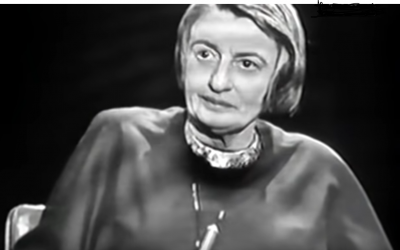Employing his wry humor and irreverence to promote his left wing agenda, director Michael Moore crusades against President Bush and the War in his latest documentary, Fahrenheit 9/11. Like The Passion of the Christ; the movie sparked controversy in the media before it ever hit theaters. From finding a distributor after Disney dropped it to contesting (and finally accepting) the MPAA’s R rating to claims of censorship, this is more than just the release of a movie — it’s a campaign.
In his opening and closing sequences, Moore uses footage of Bush and his administration preparing for TV appearances; having makeup applied, their hair combed, etc. If this is supposed to show that Bush is guilty of trying to look presentable to the American public, no one is going to accuse Michael Moore of hypocrisy. But the real purpose is to paint Bush and the War as one big façade.

Cartoon by Cox and Forkum
Moore’s conclusion is largely argued from fallacious appeals to emotion, sure to fuel Democrats in their battle for the White House and leave those looking for a well reasoned critique of Bush and current events out in the cold.
Fahrenheit 9/11 is repetitive, saturated with Moore posing questions in voiceover and cutting to shots of Bush stumbling on answers. Bush has set himself up for this, of course. With all of his struggling for words and thoughtless pauses there is plenty to play with in the editing room. But the approach feels much like a stand-up comedy routine; you have the set up, you have the zinger, then the next one. None of it is well integrated — some of it self-contradictory — and Moore offers few answers to the problems he claims America faces.
Footage that is meant to lead the viewer to a self-evident conclusion often does not. At times it is misleading or bends the truth. There are appeals to emotion, such as a mother in tears blaming Bush for her son’s death or Bush announcing the Iraq invasion intercut with idyllic shots of children flying kites in Iraq. Soldiers listen to explicit heavy metal music while going into battle, the implications of which are neither explored nor clear. Moore tries to demonstrate that the world is not behind the war by listing only the insignificant countries of the Coalition of the Willing — while significant countries like the United Kingdom are omitted.
Still, Moore presents some interesting facts: the Bin Laden family being allowed to leave the country after 9/11 when all other air traffic was grounded, various intertwining of politics and business, and Bush continuing his grade-school photo op for seven minutes after the second plane hit the World Trade Center.
Moore implies that the enemy is not militant Islam or Iraq; it is Bush, an inept and bumbling president who keeps himself in power with his color-coded terror alerts that trick Americans into thinking the nation is at risk of annihilation. The fact that Bush is simultaneously portrayed as a fool and as a master strategist of power is one of Moore’s many contradictions.
Fahrenheit 9/11 doesn’t ask why America was attacked, and it barely acknowledges that 9/11, the worst single attack on America in history, was an act of war. What happened on that date — and its causes — are conspicuously absent from Moore’s movie. There is not a single frame of the act that is the reason for Moore’s movie: passenger planes hijacked by religious fundamentalists crashing into the Twin Towers. But Moore makes sure to display any collateral damage at the hands of Americans.
Ultimately, Fahrenheit 9/11 is propaganda for the converted. Just as Christians voted for their faith at the box office with Passion of the Christ, so liberals now have an opportunity to have their ballots counted too. But few minds will be changed. Even the legitimate questions Moore poses are not answered or are overshadowed by his emotionalist and deceptive tactics. The result is a monotonous smear piece, not an honest opinion, which is why it fails as a documentary.
This article was originally published on Box Office Mojo (www.boxofficemojo.com) and is republished here with permission.


